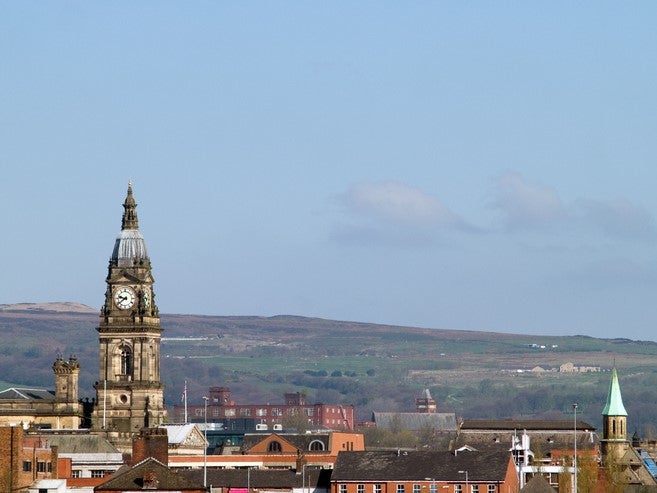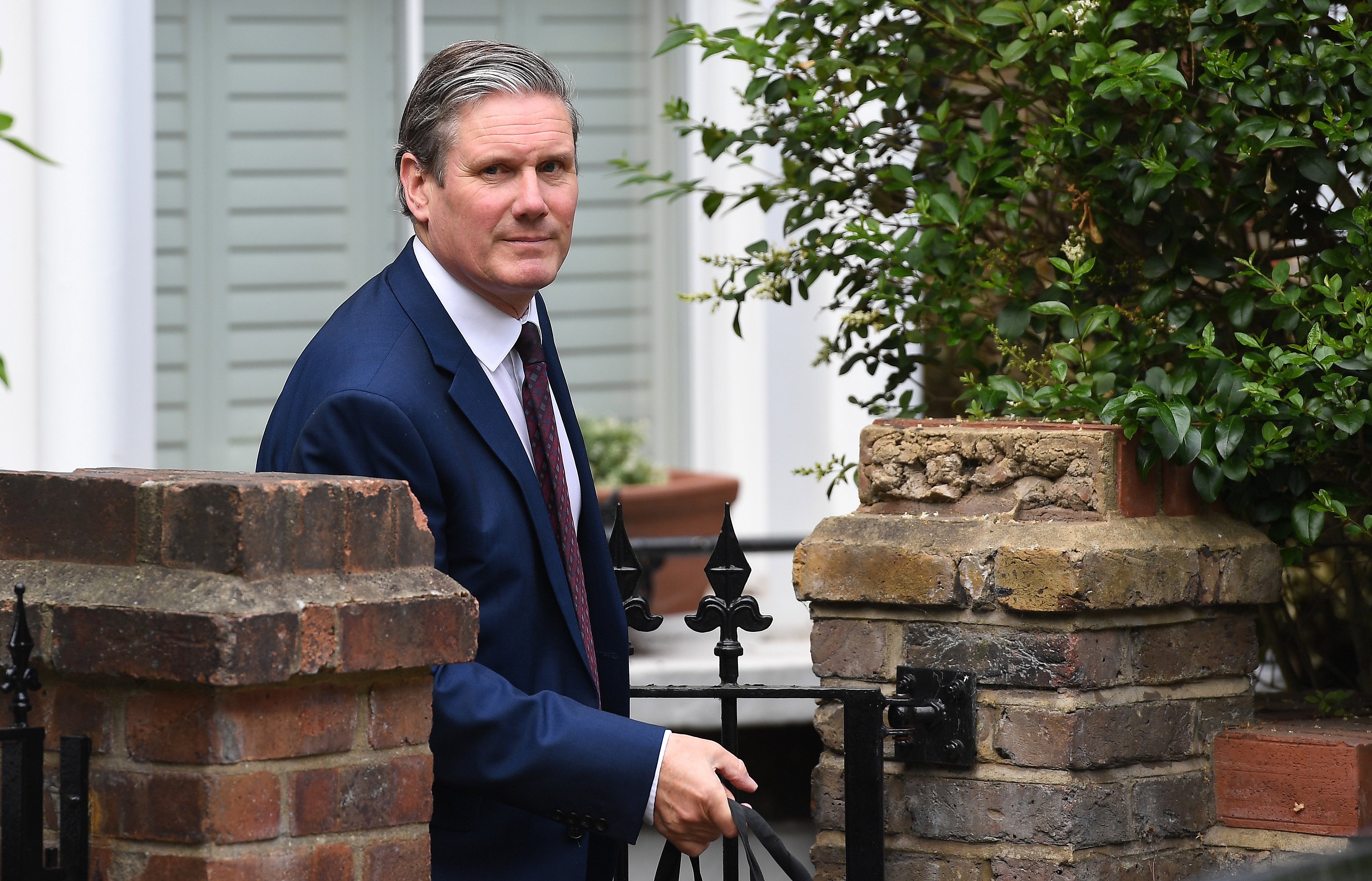Coronavirus news – live: Government announces £10,000 fine for avoiding self isolation as anti-lockdown protesters clash with police
Follow all the latest updates and statistics on the pandemic
Your support helps us to tell the story
From reproductive rights to climate change to Big Tech, The Independent is on the ground when the story is developing. Whether it's investigating the financials of Elon Musk's pro-Trump PAC or producing our latest documentary, 'The A Word', which shines a light on the American women fighting for reproductive rights, we know how important it is to parse out the facts from the messaging.
At such a critical moment in US history, we need reporters on the ground. Your donation allows us to keep sending journalists to speak to both sides of the story.
The Independent is trusted by Americans across the entire political spectrum. And unlike many other quality news outlets, we choose not to lock Americans out of our reporting and analysis with paywalls. We believe quality journalism should be available to everyone, paid for by those who can afford it.
Your support makes all the difference.A second lockdown might be needed “sooner rather than later” to curb a second wave of coronavirus in the UK, an expert has warned.
PM has week to sort out test and trace or face 'bleak winter’
Boris Johnson has one week to sort out the test and trace system or consign Britain to a “very bleak winter” of rising coronavirus infection and possible lockdown restrictions, Labour’s shadow health secretary Jonathan Ashworth has warned.
Although the prime minister has promised to increase testing numbers to 500,000 daily by the end of October, Mr Ashworth warned that this would not be soon enough to deal with fast-rising demand which has seen many turned away or told to travel hundreds of miles at a time when infections are doubling every week.

PM has a week to sort out test and trace, warns shadow health secretary
Decade of austerity left UK vulnerable to pandemic, says Jonathan Ashworth
Iran death toll surpasses 24,000
Iran's coronavirus death toll has risen by 166 to 24,118.
The country’s total number of identified cases spiked by 2,845 to 419,043 in the last 24 hours, health ministry spokeswoman Sima Sadat Lari told state TV.
Pub-going holidaymaker partly to blame for town’s surge in cases
A holidaymaker who did not self-isolate after returning home to Bolton was partly responsible for the town's sudden surge in coronavirus cases, the council leader has said.
The unnamed traveller went on a pub crawl almost immediately after arriving back in the area, David Greenhalgh claims.
Colin Drury has more details:

Man who went on a pub crawl instead of self-isolating partly caused town's surge in coronavirus cases
Instead of self-isolating, he went out drinking – and was found positive five days later
Indonesia reports record rise in daily cases
Indonesia has become the latest country to report its biggest daily rise in coronavirus infections since the start of the pandemic.
Data from the country’s health ministry showed 4,168 new cases on Saturday, taking the total to 240,687.
The figures added 112 new deaths, taking the death toll to 9,448, the biggest death toll in Southeast Asia.
UK needs ‘sustainable’ set of coronavirus restrictions
Professor Neil Ferguson has said the government needs to develop a set of "sustainable" coronavirus restrictions if it wants to avoid repeated lockdowns.
Prof Ferguson - whose modelling led the government to order the lockdown in March - told BBC Radio 4’s Today programme: "You can lock down and then completely relax and then lock down again.
"My own view is at the moment a temporary lockdown - it wouldn't be like it was in March, it would be less restrictive than that - would pull down infection numbers to allow the testing system to cope a bit better.
"But I think actually what we want is to have a set of sustainable measures through until we have a vaccine, not go through this cycle again."
‘Circuit break’ national lockdown
An expert has suggested a temporary "circuit break" of national lockdown measures could slow the spread of Covid-19 while buying time for NHS Test and Trace to improve.
Mark Woolhouse, professor of infectious disease epidemiology at the University of Edinburgh, said an "optimistic" aim of new restrictions could be to drive down the coronavirus R number and reduce the incidence of new infections by as much as half for a short period.
But he warned that the approach would only defer the challenges of the pandemic.
Other experts highlighted that further measures would only control rather than stop transmission of the virus, and questioned whether a proposed period of two weeks would be effective.
Their comments come amid reports the government is considering new national restrictions to curb the spread of Covid-19, with cases rising and winter approaching.
Analysing the concept of a "circuit breaker", Prof Woolhouse said: "The aim is to use additional social distancing measures to reduce the R number well below one for a short period; two weeks has been suggested.
"That would drive down the incidence of new infections, perhaps by as much as half if R fell to a similar value as during lockdown, though that may be optimistic.
"Lower incidence means lower risk of infection and, for the minority most vulnerable to Covid-19, lower risk of severe illness, although the latter benefit might not be seen until after the circuit breaker was over."
Life under a pandemic worldwide
A selection of images from around the world today shows how people are reacting to the coronavirus restrictions.



Coronavirus has sealed Starmer’s ascendancy over his party
The lockdown has had a remarkable effect in suppressing grassroots activism for most of this year, writes John Rentoul:

Coronavirus has saved Keir Starmer from a fractious Labour conference
It took Neil Kinnock seven years to take back control of the party from the Bennites in the 1980s – the pandemic has helped seal Starmer’s ascendancy over his party in just five months
Lockdown opponents scuffle with police
Scuffles have broken out between demonstrators and police at a rally in Trafalgar Square organised by opponents of coronavirus lockdown measures.
Metropolitan Police officers moved in on the protesters as they congregated near Nelson's column on Saturday.
The protesters formed human blockades opposite the officers to stop them from making arrests.
Scuffles broke out between the two sides next to the National Gallery, before officers were pushed back by the loud crowd, who began cheering and chanting.
One protester held a banner calling for the government's Sage scientific advisers to be sacked, while another's declared Covid-19 a "hoax".
Madrid residents facing localised lockdown doubt restrictions will work
A partial lockdown aimed at stemming a sharp rise in coronavirus cases is set to begin in some of Madrid's poorer districts next week, but residents of one of the worst-hit neighbourhoods doubt the new measures will work.
Vallecas, a southern district with a lower average income and higher immigrant population, has one of the highest infection rates in the Spanish capital - almost six times higher than in Chamberi, a wealthier, northern district.
Under the restrictions, announced by Madrid's regional government yesterday, movement between and within six districts that are home to about 850,000 people will be restricted from Monday, but people will still be able to go to work. Police will be deployed to enforce the lockdown.
Access to parks and public areas will be restricted, gatherings will be limited to six people and commercial establishments will have to close by 10pm in the areas.
Civil servant Feli, who lives in Vallecas, described the restrictions as "completely useless", adding: “We have to travel from one area which has a lot of cases to another which has less and we are going to spread it.”
Lola, a cleaner, said people would not obey the measures “because many people do not even have a bank book”. She added: “If they fine them, how are they going to get the money?"

Join our commenting forum
Join thought-provoking conversations, follow other Independent readers and see their replies
Comments